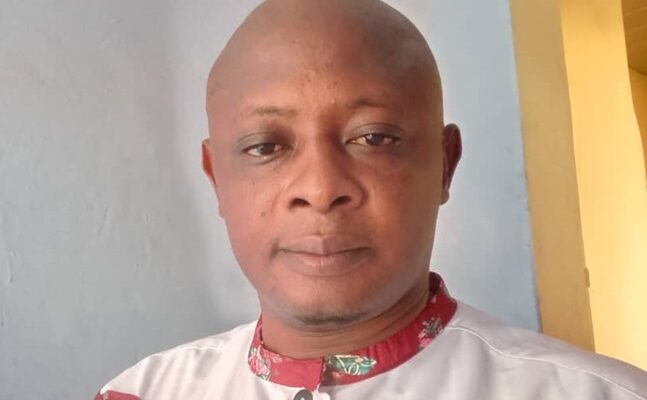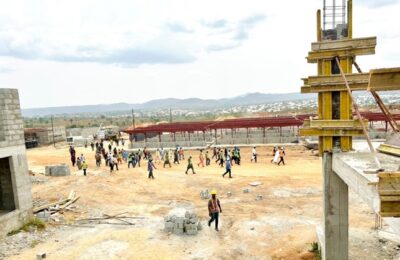The annals of Igala political history are marred by fratricidal fissures, internecine rivalries, and a perennial lust for parochial dominance. Yet, even within these cracked walls of discontent lies a potent possibility—the sacred imperative to heal, to reconcile, and to resurrect a polity worthy of its ancient prestige. In a time when political schisms threaten to cannibalize the future of Igalaland, it becomes imperative to turn our gaze to the hallowed lessons of functioning democracies, where nations once broken now stand tall through the arduous art of reconciliation.
In the theaters of world politics, the nations that have transcended their own chasms of chaos did not do so by entrenching bitterness but by laboriously cultivating forgiveness and collective aspiration. Germany, once the crucible of the world’s darkest convulsions, exemplified post-war rebirth through moral introspection, radical humility, and a tenacious commitment to constitutional democracy. The Adenauer era did not merely reconstruct the rubble of German cities—it mended the fractured soul of a broken people. The principle of Vergangenheitsbewältigung—the grappling with historical guilt—transmuted collective shame into national renewal, an instructive template for any society languishing in political purgatory.
Estonia, clawing its way from the iron grip of Soviet totalitarianism, metamorphosed into one of the most digitally and politically sophisticated democracies within a generation. By fusing transparency, civic participation, and an unrelenting pursuit of technological innovation, Estonia defied its traumatic past and rewrote its future. It achieved cohesion not by silencing dissent but by orchestrating symphonies of inclusion, accountability, and visionary leadership—virtues conspicuously absent in the current Igala political repertoire.
Colombia’s valiant strides toward reconciliation, following decades of internecine warfare, likewise offer a luminous path forward. The painstaking peace accords, brokered at great personal and political expense, were emblematic of leadership willing to privilege national healing above transient political triumphs. Rather than wield the wounds of the past as instruments of political currency, Colombian leaders wagered everything on the altar of collective hope, a wager that slowly but surely rewove the torn fabric of their nation.
In stark contrast, the Igala political milieu remains an anemic theater where ambition festers without vision, where tribal vendettas metastasize into electoral violence, and where leaders, seduced by ephemeral spoils, abdicate the solemn vocation of statesmanship. Healing in Igalaland must thus commence not from superficial pacts or contrived coalitions, but from a radical, soul-deep reckoning with our failures—both moral and political. It requires leaders of towering character who, like ancient city-builders, will repair the breaches not with sand and mortar, but with the durable bricks of trust, magnanimity, and shared destiny.
The biblical ethos offers an unerring blueprint. “All this is from God, who reconciled us to Himself through Christ and gave us the ministry of reconciliation” (2 Corinthians 5:18). Reconciliation is not an option—it is a divine mandate. Healing must be baptized in forgiveness, not transactional but transformational, severing the cycle of recrimination that has arrested Igala’s political evolution. As Jesus admonished, forgiveness must be infinite, unwearied, and uncalculating: “not seven times, but seventy times seven” (Matthew 18:22). True political renewal in Igalaland will not be forged in the flames of retaliation but in the crucible of grace.
Politicians must cease to see opponents as existential threats and recognize them as fellow laborers in the vineyard of nation-building. As Abraham Lincoln, facing a sundered America, wisely counseled, “Do I not destroy my enemies when I make them my friends?” The elevation of political contestation from a zero-sum blood sport to a dialogue of visions is the only path forward. Where ambition is wedded to virtue, and power is yoked to purpose, true leadership will emerge—not mere occupiers of office but stewards of destiny.
The mechanics of such healing are neither arcane nor unattainable. It requires institutionalizing mechanisms for inclusive dialogue—political forums untainted by partisan bias, traditional councils restored to moral relevance, and community town halls where every citizen, regardless of social station, feels vested in the commonweal. Transparency must cease to be an electioneering slogan and become the bloodstream of governance. Political patronage, the cancer of communal solidarity, must be excised with surgical precision, replaced with meritocracy and service-driven leadership.
Moreover, the spiritual rearmament of political actors is non-negotiable. In a land where ancestral pacts once demanded leaders to govern with the fear of divine judgment, the abandonment of sacred accountability has bred profane politics. A return to covenantal leadership—where public office is seen as stewardship before God and posterity—is essential. As Apostle Paul Enenche exhorts, “Leadership without character is catastrophe waiting to happen.” Igala leaders must rediscover the ancient wisdom that power unmoored from virtue is a curse, not a blessing.
If Germany could rise from the ashes of moral catastrophe, if Estonia could vault from tyranny to transparency, if Colombia could bury the sword and embrace the ploughshare, then Igalaland too can yet script its renaissance. But it will not be handed to us. It must be wrested from the jaws of complacency, midwifed through painful introspection, and nursed through unflagging commitment to the higher ideals of unity, justice, and love.
The wells of strife that have poisoned the political waters of Igalaland for decades can be healed. But healing will not descend like a mystical vapor; it must be summoned, cultivated, and guarded. It demands a new generation of Igala leaders and citizens alike—covenant-keepers rather than opportunists, visionaries rather than vultures, nation-builders rather than demagogues.
The hour is late, but not irredeemable. The wells can yet spring forth with the waters of renewal, if only we have the courage to dig again, to cleanse, and to drink together from the cup of a shared, healed future.
– Inah Boniface Ocholi writes from Ayah – Igalamela/Odolu LGA, Kogi state.
08152094428 (SMS Only)




